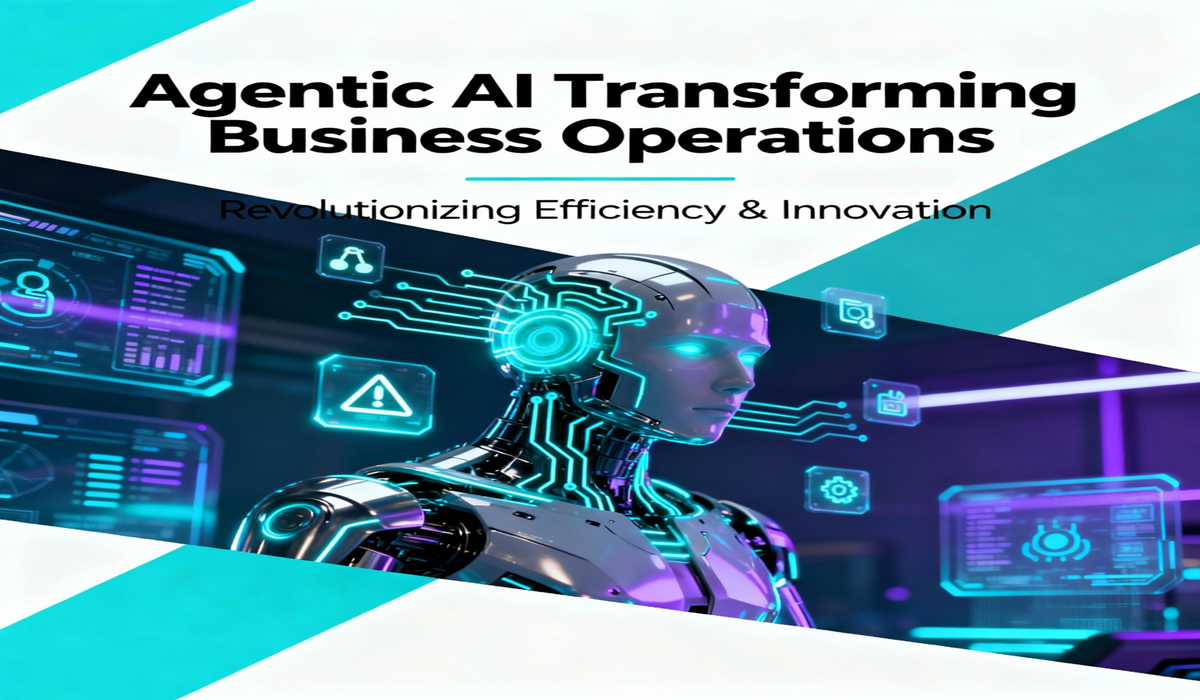
In 2025, the rise of agentic AI marks a pivotal shift in how businesses operate. Unlike earlier AI models that required constant human oversight, agentic AI systems autonomously manage workflows, make decisions, and continuously improve performance—giving companies a powerful competitive edge.
Agentic AI goes beyond automation by combining goal-setting, planning, execution, and learning. These intelligent agents proactively identify problems, develop strategies, and carry out tasks without constant prompts, enabling real-time adaptability across complex business environments.
Agentic AI automates entire workflows rather than isolated tasks. For example, AI agents automatically resolve IT support tickets, reroute supplies to meet inventory gaps, and trigger procurement—all without human intervention—resulting in 20-30% faster cycle times and significant cost reduction.
Insurance companies use agentic AI to manage claims from document validation to payout decisions, cutting claim processing time by 40% and increasing customer satisfaction measured by net promoter scores by 15 points.
Agentic AI-powered campaign managers test, adapt, and optimize marketing touchpoints continuously. A B2B SaaS firm reported a 25% increase in lead conversion rates after integrating agentic AI for sales routing and personalization.
Agentic AI autonomously detects transaction anomalies, forecasts cash flow needs, and recommends account reallocations, reducing risk events by 60% in pilot programs, boosting financial security and operational resilience.
By synthesizing data from diverse sources and simulating potential outcomes, agentic AI companies provide actionable insights that enhance strategic planning and on-the-fly decision-making across departments.
Beyond automation and speed, agentic AI delivers consistent quality, reduces human error, and frees employees to focus on creative and strategic work, improving overall employee satisfaction and business agility.
While agentic AI boosts business performance, organizations must address challenges in integration, governance, and workforce reskilling to fully reap the benefits and ensure ethical AI use.
Adopting agentic AI requires strategic planning—starting with pilot projects in high-impact areas, investing in data readiness, fostering a culture of innovation, and building cross-functional teams to drive AI integration.
The agentic AI advantage lies in its ability to transform business operations by delivering autonomous, adaptive, and intelligent workflows. Companies embracing this technology in 2025 position themselves to dominate their markets by operating faster, smarter, and more efficiently than ever before.
1. What sets agentic AI apart from traditional automation?
Agentic AI autonomously manages workflows by setting goals, making decisions, and learning continuously, unlike rule-based automation.
2. Which business functions benefit most from agentic AI?
Key areas include IT operations, customer service, sales, marketing, finance, and risk management.
3. How should companies start integrating agentic AI?
Begin with pilot projects in critical workflows, invest in data infrastructure, and develop governance and upskilling strategies.

This post has been authored and published by one of our premium contributors, who are experts in their fields. They bring high-quality, well-researched content that adds significant value to our platform.